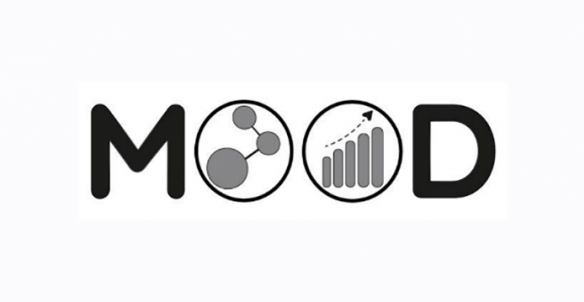MOOD – Dealing With Emerging Diseases: Rethinking How We Monitor Global Health

The MOOD Project started in January 2020 and intends to improve epidemic intelligence tools and services. It is is part of the European programme H2020, and has a budget of 14 million euros.
At the moment, the project is very focused on COVID-19.
In the next 4 years, 25 different research institutions, foundations, and government public health and veterinary organizations will work together in the development of new monitoring tools, as a complementary addition to those already in existence.
This project will act in four stages:
- Development of five case studies on epidemic intelligence systems in European countries with different geography, climate, socio-economic statuses and methods of monitoring. These case studies have already begun and are focused on Italy, Finland, France, Serbia, and Spain.
- Characterization of the systems existing of the aforementioned countries, evaluating the needs in terms of epidemic intelligence tools and services.
- Development of tools and services that will be available to the European Centre for Disease Control (ECDC) and to the public health agencies involved in the project. These will also be disseminated in Europe and beyond, particularly in the Global South;
- Sharing of the new co-constructed tools and services at a reasonable cost and, if possible, as open source.
Epidemic intelligence systems or how to assess the risk of emerging pathogens
Climate change, animal and human mobility, growing populations and urbanization bring an increased risk for the emergence and global and accelerated spread of new pathogens. It is crucial that the emergence of a pathogen can be rapidly detected and assessed for the risk it poses to public health.
In response to this, public health agencies are developing epidemic intelligence systems that rely on two types of information: “official” sources reported by public health services as well as so-called “unofficial” sources, which relay information found in the media, scientific articles or laboratory data.
The MOOD project will contribute to these efforts, providing existing monitoring platforms with methodological and practical support in response to their needs. Beyond health data, other types of data will also be incorporated to better assess the risk of a pathogen spreading.
INESC-ID researchers involved are Bruno Martins and Mário Silva, which are also professors at Instituto Superior Técnico.
Partners involved:
France: Anses, Cirad, INRAE, Inserm, Université de Montpellier-LIRMM, GERDAL
Germany : Mundialis GmbH & Co KG
Belgium: Institute of Tropical Medicine, Université Libre de Bruxelles, Katolich University of Leuven, Avia-GIS
Spain: Instituto de Salud Carlos III
Italy: Fondazione Edmund Mach/Fondazione Bruno Kessler, Istituto Superiore di Sanità
Finland: Finnish Institute for Health and Welfare Netherlands: Stichting OpenGeoHub
Portugal: Instituto de Engenharia de Sistemas e Computadores, Investigação e Desenvolvimento em Lisboa
United Kingdom: University of Oxford, Environmental Research Group Oxford Limited, University of Southampton
Serbia: Institute of Public Health of Serbia
Switzerland: ETH Zürich, SIB Institut Suisse de Bioinformatique
United States of America: International Society for Infectious Diseases
